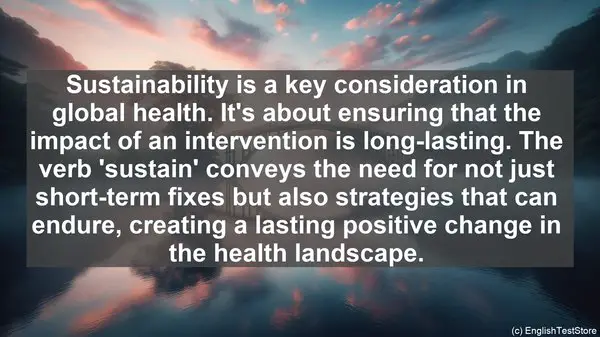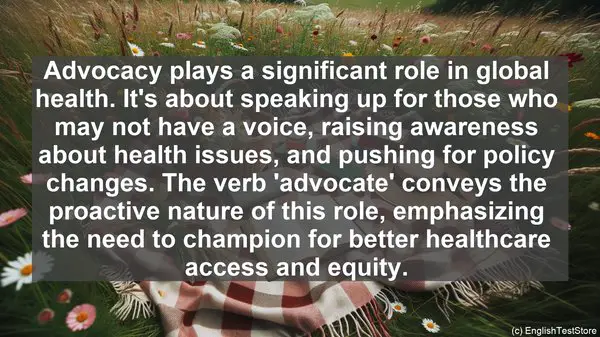Introduction: The Importance of English Verbs in Global Health
When it comes to discussing global health initiatives and medical outreach, having a strong command of English verbs is crucial. Verbs not only help us express actions but also convey the urgency, impact, and intention behind those actions. Today, I’ll be sharing with you the top 10 English verbs that you’ll frequently encounter in this field.

1. Implement
To implement a global health initiative is to put it into action. It involves planning, organizing, and executing various aspects of the initiative, such as setting up medical camps or distributing resources. The verb ‘implement’ emphasizes the active involvement and hands-on approach required in these endeavors.
2. Coordinate
In the context of global health, coordination is key. It’s about bringing together different stakeholders, such as healthcare professionals, local authorities, and volunteers, to work towards a common goal. The verb ‘coordinate’ highlights the need for collaboration, effective communication, and synchronization of efforts.
3. Assess
Before, during, and after a medical outreach program, it’s essential to assess the situation. This involves evaluating the healthcare needs of a community, understanding the existing infrastructure, and identifying areas for improvement. The verb ‘assess’ signifies the importance of a comprehensive analysis as a foundation for any intervention.

4. Advocate
Advocacy plays a significant role in global health. It’s about speaking up for those who may not have a voice, raising awareness about health issues, and pushing for policy changes. The verb ‘advocate’ conveys the proactive nature of this role, emphasizing the need to champion for better healthcare access and equity.
5. Educate
Education is a powerful tool in healthcare. Whether it’s teaching a community about preventive measures or training local healthcare workers, the verb ‘educate’ captures the essence of knowledge sharing. It’s about empowering individuals with information that can have a long-term impact on their well-being.
6. Mobilize
To bring about change, we often need to mobilize resources, both human and material. The verb ‘mobilize’ implies not just gathering these resources but also putting them into action. It’s about harnessing the collective strength and making things happen, be it setting up a clinic or responding to a health crisis.
7. Collaborate
Collaboration is at the heart of global health. It’s about working together, pooling expertise, and sharing responsibilities. The verb ‘collaborate’ emphasizes the need for synergy, recognizing that the challenges we face are often complex and require a collective effort to overcome.
8. Monitor
Once a health initiative is underway, monitoring becomes crucial. It involves keeping a close eye on various parameters, such as the progress of a program, the impact it’s making, and any emerging challenges. The verb ‘monitor’ signifies the continuous nature of this process, highlighting the need for regular evaluation and adjustment.
9. Evaluate
Evaluation goes hand in hand with monitoring. It’s about assessing the effectiveness and efficiency of a program, identifying what’s working well and what needs improvement. The verb ‘evaluate’ emphasizes the importance of a structured analysis, which can provide insights for future interventions.
10. Sustain
Sustainability is a key consideration in global health. It’s about ensuring that the impact of an intervention is long-lasting. The verb ‘sustain’ conveys the need for not just short-term fixes but also strategies that can endure, creating a lasting positive change in the health landscape.
